
Harpreet Bhatia, MD, MAS, FACC, discusses emerging new approaches to lipid lowering therapies.

Harpreet Bhatia, MD, MAS, FACC, discusses emerging new approaches to lipid lowering therapies.

Rachel Chandra, PharmD, MPH, FASHP, shares insight into the VALOR-QI program.

Rachel Chandra, PharmD, MPH, FASHP shares methods for improving adherence to lipid lowering therapies discussed at the AHA 2024 Scientific Sessions.

Christian Ruff, MD, MPH shared the results of the AZALEA-TIMI 71 trial.

Leonard Egede, MD, MS, FACP discussed the association of historical redlining and contemporary structural racism on life expectancy.

Rebekah Walker, PhD raises awareness of the long-lasting health implications caused by historic redlining.

Milind Desai, MD, MBA shares insight into the REMS program for patients with obstructive hypertrophic cardiomyopathy.

Craig Beavers, PharmD, FACC, FAHA, FCCP, BCCP, CACP will be moderating a session about social determinants of health and heart failure.

Panelists discuss how pharmacists can address remaining unmet needs and challenges in optimizing frontline therapy for patients with transplant-eligible newly diagnosed multiple myeloma (NDMM), including areas such as managing complex drug interactions, improving medication adherence, mitigating treatment-related toxicities, streamlining transitions of care, and enhancing patient education and support throughout the treatment journey.

Panelists discuss how they navigate challenges with payer coverage for quadruplet regimens in multiple myeloma treatment, including strategies they employ to address insurance denials or restrictions, such as providing clinical justification, leveraging recent trial data, and collaborating with financial assistance programs to ensure patients can access optimal therapy despite potential coverage difficulties.
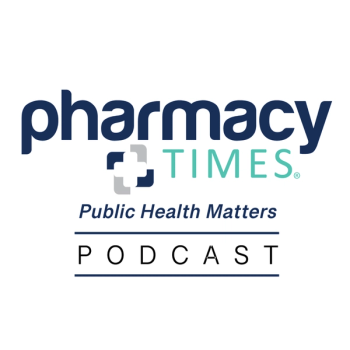
In this episode of Public Health Matters, Christina Madison discusses pharmacist-physician collaborations with Amina Abubakar and Stephen Lewis.
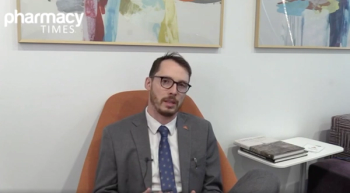
Blaine Groat, PharmD, discusses the evolution of US Pharmacopeia (USP)'s drug standards, highlighting new compounding guidelines, as well as USP’s commitment to pharmacogenomics and upcoming opportunities for experts to contribute to personalized medicine standards.

Karyne Jones highlights the importance of pneumococcal vaccination for those 50 years and older, especially in communities of color.

Anthony Perissinotti, PharmD, BCOP, discusses unmet needs and trends in managing chronic lymphocytic leukemia (CLL), with an emphasis on the pivotal role pharmacists play in supporting medication adherence and treatment decisions.

Tripp Logan, PharmD, reflects on being named Independent Pharmacist of the Year from the National Community Pharmacists Association.

Panelists discuss how treatment regimens for multiple myeloma patients can be personalized to improve adherence and quality of life by considering factors such as dosing schedules and routes of administration while emphasizing the role of pharmacists in providing resources and support to keep patients informed, engaged, and compliant with their individualized treatment plans.
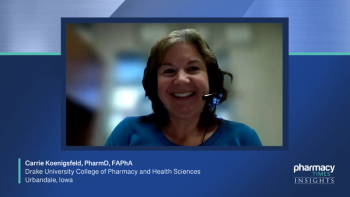
Carrie Koenigsfeld, PharmD, FAPhA, discusses examples of successful community outreach initiatives aimed at overcoming barriers to adult RSV vaccination.

Panelists discuss how pharmacists actively engage in educating and coordinating with nurses, oncologists, and other health care providers by conducting in-service trainings, participating in multidisciplinary team meetings, and collaborating on the development and implementation of formularies, order sets, and treatment protocols to ensure optimal patient care in multiple myeloma management.

Trent Thiede, PharmD, president of Pharmacy Audit Assistance Service (PAAS) International, discussed how pharmacy teams can remain prepared for audits from pharmacy benefit managers (PBMs).
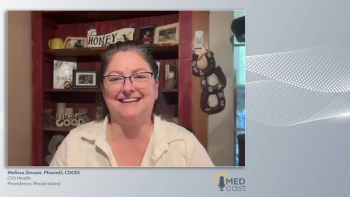
Melissa Zinszer, PharmD, CDCES, explores the multifaceted role of pharmacists and healthcare providers in managing behind-the-counter medications, addressing patient concerns, optimizing over-the-counter therapy, and ensuring safe, effective treatment through careful symptom assessment and consideration of drug interactions.

Melissa Zinszer, PharmD, CDCES, explores the multifaceted role of pharmacists and healthcare providers in managing behind-the-counter medications, addressing patient concerns, optimizing over-the-counter therapy, and ensuring safe, effective treatment through careful symptom assessment and consideration of drug interactions.

Erin Rexroth, associate director of marketing for NCPA, discussed how pharmacies can utilize marketing strategies to drive awareness and patient engagement.

Panelists discuss how pharmacists play a crucial role throughout the multiple myeloma patient journey, from diagnosis to treatment, by contributing to medication management, patient education, adverse effect monitoring, and the development and implementation of order sets and clinical pathways within electronic medical record systems, thereby enhancing treatment efficacy and patient safety.

Panelists discuss how subcutaneous (SC) administration of drugs like daratumumab offers advantages over intravenous (IV) administration in terms of reduced health care resource utilization, improved patient convenience, and potentially better treatment adherence, while also considering potential drawbacks such as injection site reactions and the need for proper training in SC administration techniques.

Carrie Koenigsfeld, PharmD, FAPhA, discusses how pharmacists can incorporate RSV vaccination education and recommendations into daily pharmacy workflows, including prescription pick-ups, consultations, and routine MTM sessions.

Judith Joseph, MD, MBA addressed ADHD misdiagnosis, symptoms, and effective treatments.

Nathan Vanderford, PhD, MBA speaks about barriers to cancer care access experienced by patients in rural communities.
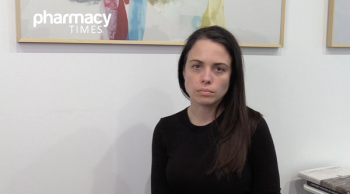
Sara Rogers, PharmD, discusses the formation and goals of the Standardizing Laboratory Practices in Pharmacogenomics (STRIPE) initiative, which seeks to standardize pharmacogenomic practices and improve clinical decision-making by establishing consensus across all stakeholders.

Pharmacists are encouraged to leverage prescription drug monitoring programs connect patients to community-based resources to address the opioid crisis and pharmacy deserts.
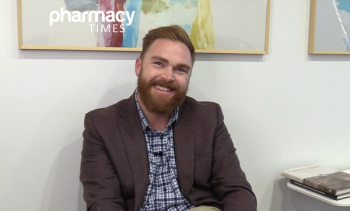
Ryan Nelson, PharmD, discusses the STRIPE Annual Meeting and Consensus Workshop’s focus on unifying pharmacogenetic guidelines across major organizations, such as the FDA, European Medicines Agency, Clinical Pharmacogenetics Implementation Consortium, and National Comprehensive Cancer Network.